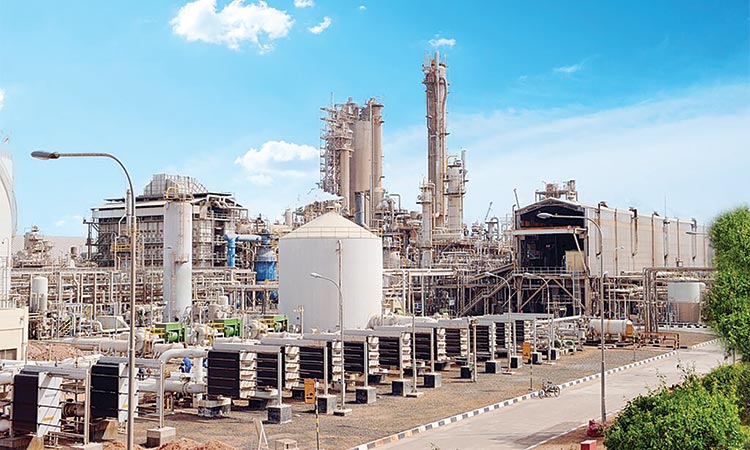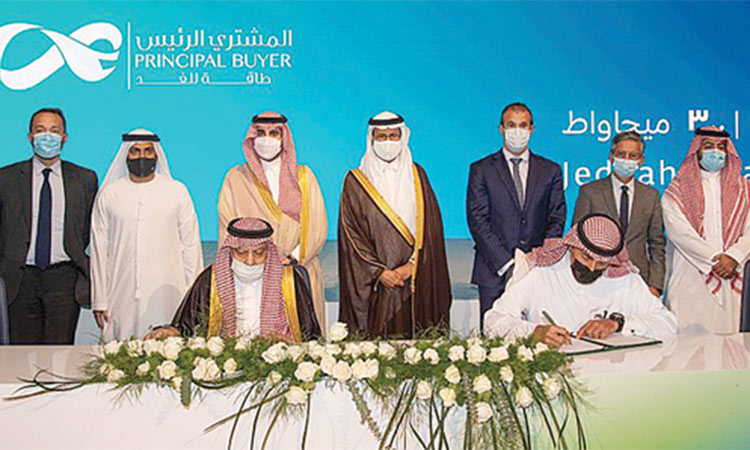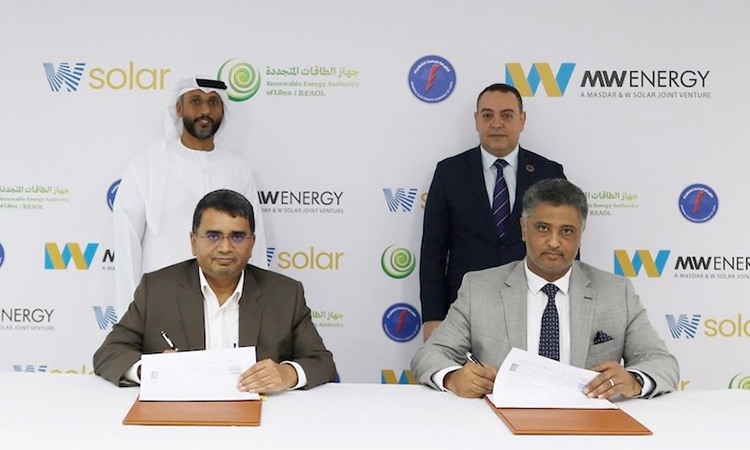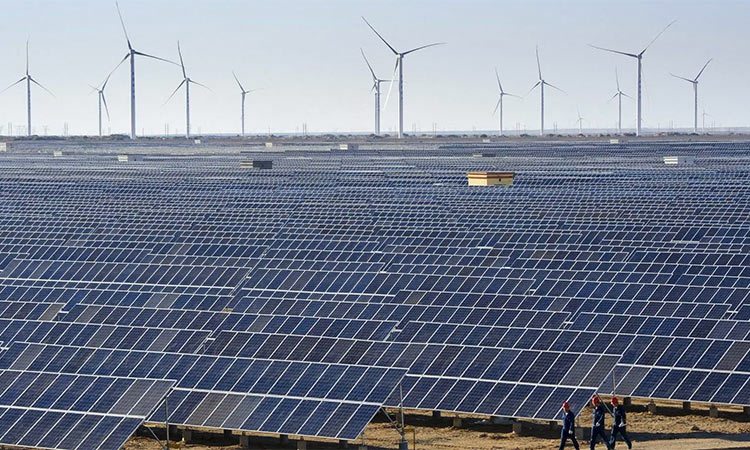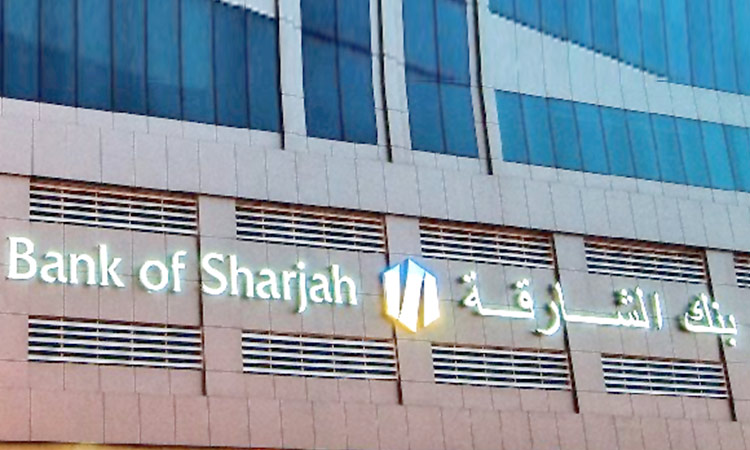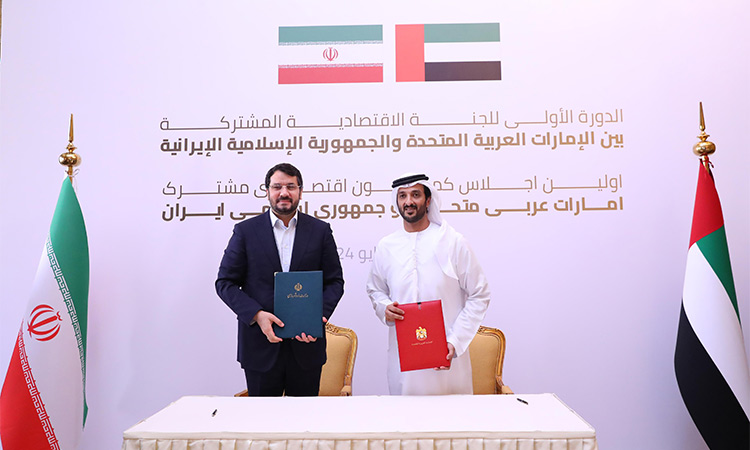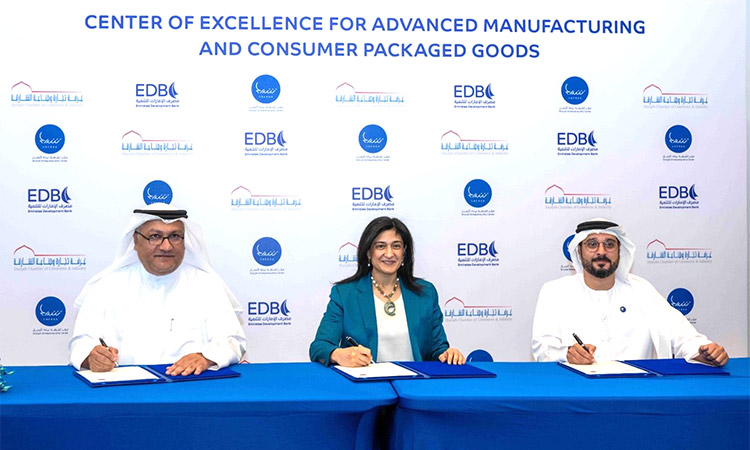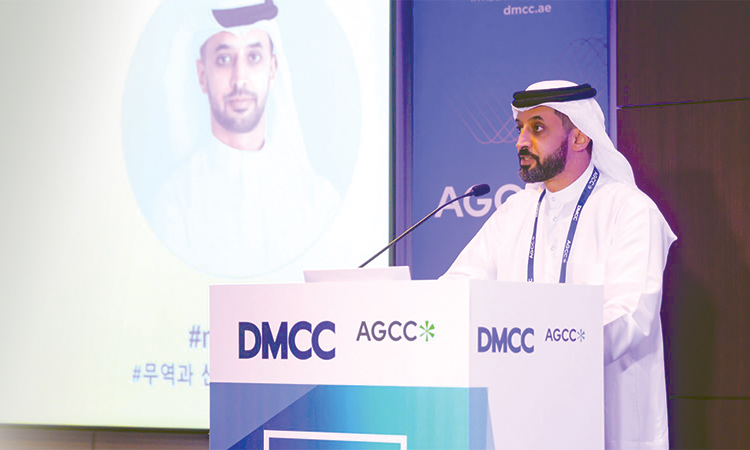SkyPower, ZETDC sign PPAs for Zimbabwe’s largest solar project
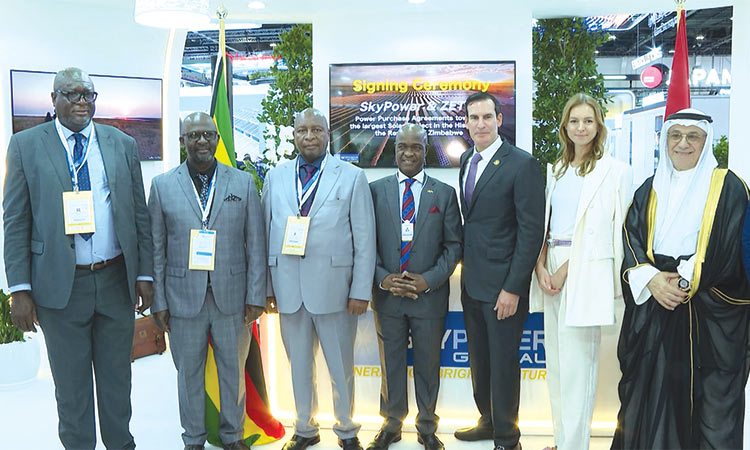
Top officials after the signing ceremony in Abu Dhabi.
The agreements pave the way for the commencement of the Green Giant project, set to deliver 500 MW of solar power, capable of energizing approximately 2 million households.
As previously stated by Emmerson Mnangagwa, President of Zimbabwe, “My presidential commitment is to enhance our energy sustainability through renewable energy by collaborating with world-class companies like SkyPower. Today’s signing is a landmark achievement for our nation, setting a robust foundation for our sustainable future.”
The signing ceremony in Abu Dhabi was witnessed by eminent personalities including Edgar Moyo, Minister of Energy of Zimbabwe, Lovemore Mazemo, Ambassador of Zimbabwe to the UAE, Abel Gurupira, Managing Director of the Zimbabwe Electricity Transmission and Distribution Company, Mazambani Edington Tapera, Chairman of ZERA.
“This is a momentous day for Zimbabwe, demonstrating our commitment to transforming our energy sector and ensuring reliable power for our people,” stated Abel Gurupira.
Kerry Adler, President & CEO of SkyPower, highlighted the project’s importance, “We are proud to kick off the initial phases of the Green Giant project at this prestigious summit. This partnership exemplifies our dedication to promoting sustainable energy development globally. Upon completion, this project will stand as a testament to Zimbabwe’s commitment to renewable energy and economic growth.”
“The significance of today’s event cannot be overstated. As we align our efforts with global energy transitions, this project underlines our strategy to integrate renewable energy into our national energy mix significantly,” remarked Edgar Moyo.
This accomplishment highlights the country’s favourable environment and underscores the exceptional teamwork and dedicated efforts from both parties.
This initiative is expected to boost Zimbabwe’s economy significantly by creating thousands of jobs and fostering infrastructure development. It is aligned with global efforts towards achieving the UN Sustainable Development Goals and enhancing the quality of life for millions of Zimbabweans.
Separately, Emirates Water and Electricity Company (EWEC) is focused on expanding solar energy production in Abu Dhabi, targeting a capacity of 7.6 gigawatts (GW) by 2030.
The initiative involves major solar photovoltaic (PV) projects, including the Al Khazna and Al Ajban plants, alongside the Noor Abu Dhabi and Al Dhafra solar facilities. These endeavours are set to position Abu Dhabi as home to the world’s four largest independent solar power plants.
In a statement to the Emirates News Agency (WAM) on the sidelines on the World Future Energy Summit in Abu Dhabi, Othman Juma Al Ali, CEO of EWEC, highlighted the company’s pivotal role in advancing solar PV energy capacity in the region. He emphasised that over 50 per cent of Abu Dhabi’s electricity is projected to be sourced from renewable and clean energy by 2030.
Al Ali detailed development plans, highlighting the 1,500-megawatt (MW) capacity Al Khazna solar PV project, EWEC’s fourth major solar energy initiative. This project is pivotal for advancing EWEC’s plans to enhance photovoltaic solar energy capabilities from 2027 to 2037 and to play a key role in achieving the country’s transition to a sustainable future, aligning with its strategic initiative for climate neutrality by 2050. Additionally, the company is progressing on three power stations scheduled for completion between 2028 and 2029, contributing to the transition towards clean and renewable energy sources.
He emphasised the importance of gas-powered stations in ensuring energy security during the transition to clean and renewable energy sources. Gas serves as a crucial transitional fuel, facilitating the Emirates Water and Electricity Company’s efforts to achieve Abu Dhabi’s decarbonization goals by 2035. Additionally, he highlighted the urgent need for an additional 5.1 gigawatts of gas capacity to support the integration of renewable energy projects and provide flexibility during peak energy demand. This includes 2.6 gigawatts of flexible and cost-effective open-cycle gas turbine capacity slated for availability by 2027, along with approximately 2.5 gigawatts of combined-cycle gas turbine capacity expected by 2028.
The CEO of EWEC noted the presence of several thermal power plants across the country, including Shuweihat, Al Mirfa, Sas Al Nakhl, Al Taweelah, and Fujairah. Discussions with relevant government authorities are underway to designate new complexes for energy production, addressing the growing energy demand.
